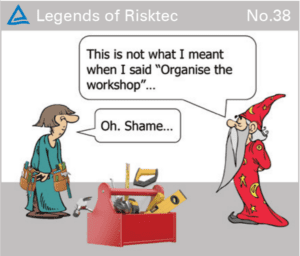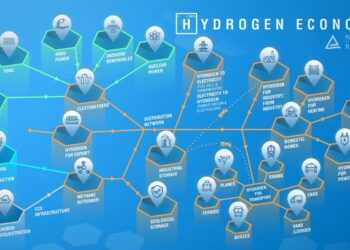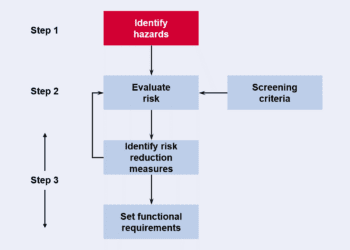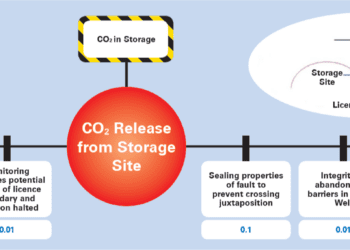Workshops – More than the sum of their parts?
Everyone who works in risk management and safety engineering knows that facilitated workshops are an essential part of our toolkit. They bring together diverse and often disparate technical disciplines, skillsets and perspectives, and are capable of identifying and solving problems beyond the ability of any single individual.

© Shutterstock
THE WORKSHOP IDEAL VERSUS REALITY
A multi-disciplinary workshop, uniting engineering with operations and management provides confidence in the output of the risk management process. Facilitators look for a quorate team of participants, whose knowledge and experience can encapsulate the full context of the risk or safety issue being considered. At least, that’s the theory or the ideal and generally it’s mostly true in practice.
Notwithstanding the best of intentions, there will always be hurdles to overcome that prevent workshops from running as smoothly as we would like. There are nearly always the attendees who sit quietly, seemingly contributing nothing but a page or two of beautifully crafted doodles. Sometimes there are strong characters who want to run the meeting without actually running the meeting, or who want to close down discussions that go beyond some arbitrary time limit. Often, despite all preparation and testing, the IT fails or glitches or assumes a mind of its own. Workshops can be frustrating, stressful, expensive and sometimes painstaking for many of the people involved; so why bother?
COMPLEXITY, ANXIETY AND EXPEDIENCY
Part of the answer to that question is that there is little practical alternative. Modern engineering projects can be so complex it is arguably impossible (and certainly inadvisable) for one individual, no matter how talented, to undertake risk identification or optioneering (for example) in isolation. We need input and understanding that only comes from the relevant engineers, operators and maintainers. Similarly, engineers and operators need safety and risk management specialists – professionals in their own right – who simultaneously possess the perversity of mindset to continually question what can go wrong, as well as keeping the big picture in mind when deciding whether it matters. Formats can range from short half-day, free-form brainstorming sessions to highly structured multiweek workshops. Each has its own characteristics and requires very different facilitating and recording skills.
One of the beauties of the structured, systematic, guideword-driven approach led by an independent professional facilitator is that it resolves many of the internal challenges organisations face, such as office politics and the imposition of individual, preferential views rather than an evidence-based consensus.
We provide a technical antidote to the nagging anxiety that the operations or engineering manager feels when they think they might have missed something or could do more. We’ll never be able to fully mitigate the chronic unease, but as well as a workshop we can often facilitate the occasional decent night’s sleep.
There’s also definitely something to be said for the lifecycle ‘set-piece’ that a workshop provides. Get in, manage risk, and get out again; thanks for the free lunch. While the person-hours can add up, from the perspective of calendar days there can’t be any doubting the expediency to the project schedule. The alternative is a correspondence based, iterative approach, which relies on the goodwill and availability of correspondents, who all have a day-job. Not surprisingly, few are tempted down this route, which risks incompleteness and delays.
THE EXTRAS
It turns out that safety professionals and risk management experts are often engineers, scientists, human factors experts, or former operators or managers. Although we’re not practicing designers, operators, maintainers or research scientists, at heart we’re a little bit of all of those things. The more experienced we get, the more languages we learn to speak. We stand at the front of the room knowing something about each of the participant’s field of interest and expertise. Most of us will never be experts in geomechanics, nor will we be oil well engineers, but we can learn enough to discuss the issues and solutions with experts and synthesise a risk analysis for geological carbon storage, for instance.
Then there’s the roomful of discipline engineers and operators embedded in the detail and the managers holding the project together (and the purse strings) with no time for the detail but plenty of accountability for making sure it’s right. In this scenario, the workshop facilitator is the integrator that helps make sense of the detail, challenges it, and catalyses a balanced and positive transformation into something cohesive that moves things forward.
Busy, large engineering projects seldom afford many occasions for project teams to assemble. A workshop can do just that, allowing people from different parts of the world to meet over coffee and snacks during the breaks, forging new relationships. Project discussions unrelated to the ostensible goals of the workshop can suddenly take shape and come to life when taken out of the day-job context, creating innovative solutions to problems no-one had even thought about. Facilitating a workshop can be just as much about facilitating the development of a team as obtaining the primary output.
Remember our doodler? He might well be a graduate or new to the project, learning by osmosis about the engineering or the process itself, as are all of the participants to greater or lesser extent. Workshops always include implicit training – learning and understanding more about the project, the issues faced by each discipline and the associated technicalities – they have to if you want to achieve the end result.
REMOTE WORKING
In our post-Covid-19 era, remote workshops are increasingly the norm and their effectiveness is proven, at least in terms of meeting their immediate aims. Concerning the fringe benefits, the jury’s out but there’s certainly promise being shown. As we become more used to life in the virtual meeting, the people we meet begin to feel almost as close as face to face and the benefits appear to remain largely unthreatened… even if we do have to make our own coffee.
CONCLUSION
Workshops are more than the sum of their parts. Whilst intended as a vehicle to identify and solve specific, multi-disciplinary problems, they bring with them a host of extras, including innovation, team building and learning…and sometimes good coffee.









